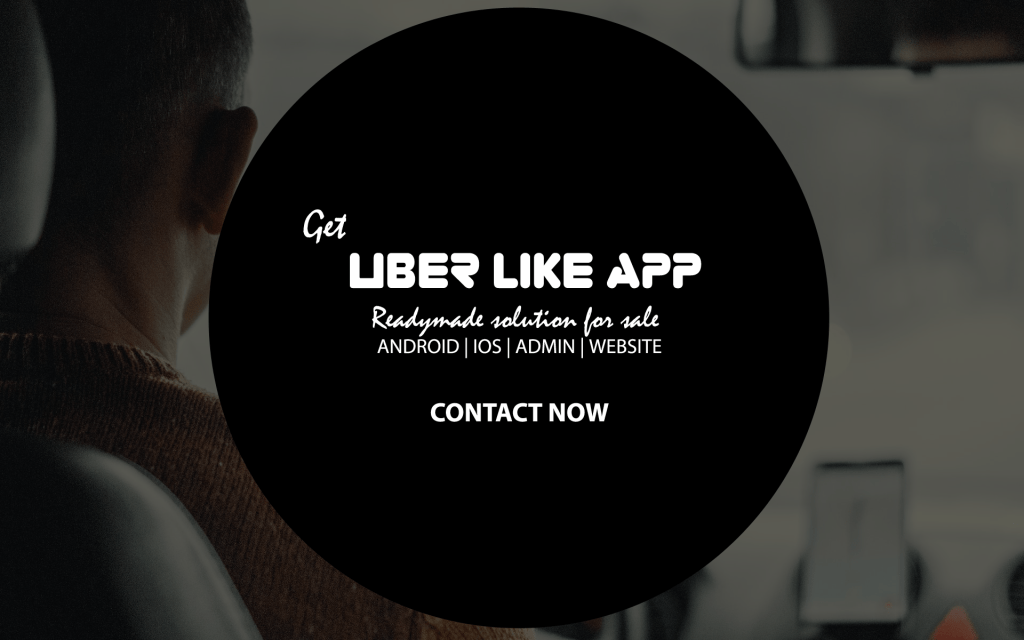Introduction:
As the world continues to rely more and more on technology, it’s no surprise that mobile mechanic apps have become increasingly popular. These apps allow customers to book a mechanic and get their car repaired without having to leave the comfort of their home or office. But with this increased demand comes a question that many people ask: how much does a mobile mechanic app cost?
The answer to this question is not straightforward. The cost of a mobile mechanic app can vary depending on a number of factors, such as the app’s features, the complexity of the design, the level of customization required, and the developer’s hourly rate. In this article, we will explore these factors in more detail, to give you a better idea of how much you can expect to pay for a mobile mechanic app.
Features of a Mobile Mechanic App
The first factor that affects the cost of a mobile mechanic app is the features it offers. A basic app that allows customers to book a mechanic and receive updates on their repair progress will cost less than an app that offers additional features, such as the ability to request roadside assistance or track the location of the mechanic.
Some common features of mobile mechanic apps include:
- Booking system: Allows customers to schedule appointments with mechanics
- Payment system: Enables customers to pay for services using the app
- Messaging system: Allows customers to communicate with mechanics directly
- Geolocation: Allows customers to locate nearby mechanics
- Vehicle diagnostics: Provides customers with information about their vehicle’s condition
- Roadside assistance: Offers additional support for customers who experience a breakdown while driving
Each of these features adds to the complexity of the app, which in turn increases the cost of development. So, if you’re looking for an app with a lot of features, be prepared to pay more.
Complexity of Design
The second factor that affects the cost of a mobile mechanic app is the complexity of the design. A simple design that consists of a few screens and basic functionality will cost less than an app with a more complex design that includes multiple screens, animations, and custom graphics.
The complexity of the design affects the amount of time and effort required by the developer to create the app. So, if you’re looking for a highly customized design, be prepared to pay more.
Level of Customization Required
The third factor that affects the cost of a mobile mechanic app is the level of customization required. A mobile mechanic app that is built from scratch will cost more than an app that is built using a pre-existing template.
Using a pre-existing template can help reduce development costs, as it allows developers to leverage existing code and functionality. However, if you require a lot of customization, such as a unique user interface or custom functionality, then you will need to pay more for a fully customized app.
Developer Hourly Rate
Finally, the developer’s hourly rate is another important factor that affects the cost of a mobile mechanic app. The hourly rate can vary depending on the experience and location of the developer.
Developers in more developed countries like the US, UK, and Canada typically charge higher hourly rates than developers in less developed countries like India, the Philippines, and Ukraine. However, this doesn’t necessarily mean that the quality of work is better from higher hourly rate developers as there are highly talented developers all around the world.
The hourly rate of a developer can also vary depending on their level of experience. Junior developers generally charge less than senior developers, but they may take longer to complete the project. So, if you’re looking for a high-quality app with a fast turnaround time, then you’ll need to be prepared to pay more for a senior developer.
Mobile mechanic app development process?
The development process of a mobile mechanic app involves several stages that must be completed in order to create a functional and successful app. Here is a general overview of the steps involved in the mobile mechanic app development process:
Planning and Research
The first step in developing a mobile mechanic app is planning and research. This involves understanding the target audience, identifying the app’s key features and functionalities, and creating a rough sketch or wireframe of the app’s interface. In this stage, it is important to conduct market research and analyze competitors’ apps to identify what works well and what needs improvement.
User Experience (UX) Design
The next step is UX design, where the app’s user interface (UI) and user experience (UX) are designed. This stage involves creating a visual design, user flows, and wireframes, which are then transformed into interactive prototypes. The UX design should focus on making the app easy to use and intuitive for the end-users.
Development
Once the UX design is finalized, the development process begins. This stage involves writing code for the app, implementing the design, and building the functionality. The development process may take several months, depending on the complexity of the app and the number of features.
Testing
After the development is complete, the app needs to be tested thoroughly. The testing process ensures that the app is free from bugs, glitches, and other issues that could affect its performance. The app is tested on various devices, platforms, and networks to ensure that it works smoothly across all platforms.
Launch
Once the app has been tested and all the issues have been resolved, it is time to launch the app. The app can be launched on various app stores like the Google Play Store and the Apple App Store, depending on the platform it is built for. During the launch, it is important to market the app effectively to attract potential users.
Maintenance and Updates
After the app has been launched, it is important to maintain it and release regular updates to keep it up-to-date. Maintenance and updates ensure that the app is performing optimally and remains relevant in the market.
Mobile mechanic booking app Pros and Cons
Mobile mechanic booking apps have become increasingly popular in recent years as they provide a convenient way for users to book mechanic services from their smartphones. However, like any technology, mobile mechanic booking apps have their pros and cons. In this article, we will explore some of the advantages and disadvantages of mobile mechanic booking apps.
Mobile mechanic booking apps have revolutionized the way users book mechanic services. They offer convenience, time-saving, and transparency, making it easy for users to find trustworthy and reliable mechanics. However, like any technology, they have their drawbacks. Users should carefully consider the pros and cons before deciding to use a mobile mechanic booking app.
Pros:
- Convenience: One of the biggest advantages of mobile mechanic booking apps is convenience. Users can book an appointment with a mechanic from their smartphones without having to leave their homes or offices. This eliminates the need to spend time and effort searching for a mechanic or visiting a mechanic’s shop.
- Time-saving: Mobile mechanic booking apps save users a lot of time. Users can book an appointment with a mechanic within minutes, and the mechanic can come to their location, saving them time that they would otherwise have spent traveling to a mechanic’s shop.
- Transparency: Mobile mechanic booking apps offer transparency in terms of pricing and services. Users can view the prices of services offered by different mechanics and choose the one that suits their budget. Additionally, users can see the ratings and reviews of the mechanics, which helps them choose a mechanic that is trustworthy and reliable.
- 24/7 availability: Mobile mechanic booking apps are available 24/7, which means that users can book an appointment with a mechanic at any time of the day or night. This is particularly useful in emergency situations where users need to get their vehicles fixed as soon as possible.
- Multiple payment options: Mobile mechanic booking apps offer multiple payment options, such as credit card, debit card, and mobile wallet payments. This makes it easy for users to pay for the services they receive.
Cons:
- Limited service range: Mobile mechanic booking apps may have a limited service range, which means that users in certain areas may not be able to use the app to book mechanic services.
- Dependence on technology: Mobile mechanic booking apps are dependent on technology, and if the app or the user’s device malfunctions, they may not be able to book an appointment with a mechanic.
- Potential for errors: Like any technology, mobile mechanic booking apps are prone to errors, and there is a possibility that the user may book the wrong service or the mechanic may not show up.
- Trustworthiness of mechanics: While mobile mechanic booking apps provide ratings and reviews of mechanics, there is no guarantee that the mechanic will perform the service as expected. Users may have to rely on the app’s dispute resolution process to resolve any issues they may face with the mechanic.
- Cost: Some mobile mechanic booking apps may charge a fee for their services, which may be higher than the cost of booking a mechanic through traditional means.
Conclusion
In conclusion, mobile mechanic apps have become a popular solution for people seeking mechanic services in a convenient and hassle-free way. The development process of such an app involves planning, research, UX design, development, testing, launching, and maintenance. Mobile mechanic booking apps have numerous benefits, including convenience, time-saving, transparency, 24/7 availability, and multiple payment options.
However, the cost of a mobile mechanic app can vary depending on a number of factors. These include the app’s features, the complexity of the design etc., they also have drawbacks such as limited service range, dependence on technology, potential for errors, trustworthiness of mechanics, and cost. Overall, the advantages of mobile mechanic booking apps far outweigh the disadvantages, and they have become an integral part of the automotive industry, providing a valuable service to both mechanics and users alike.





 Mr. Abhinay is Managing Director at Appok Infolabs.
Having12+ years of experiance in AI. | VR. | ML. and Expertise in Cloud computing | Digital marketing | Search engine optimisation.
Mr. Abhinay is Managing Director at Appok Infolabs.
Having12+ years of experiance in AI. | VR. | ML. and Expertise in Cloud computing | Digital marketing | Search engine optimisation.